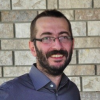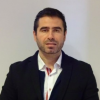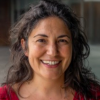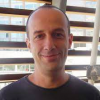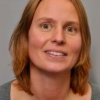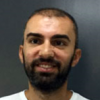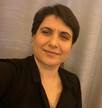Team: International
*In alphabetical order based on the organizations’ names
**Short biographies of key persons are presented
Aristotle University of Thessaloniki
Zoi Tsimtsiou, MD, MSc, PhD
Primary care physician and a senior research fellow at the Department of Hygiene at the Medical School of Aristotle University of Thessaloniki in Greece. She has previously conducted post-doc research in the Department of General Practice and Primary Care, in King’s College London. She has been involved in several projects with public health and primary health care focus for the last 15 years. She has over thirty publications and numerous presentations, workshops and lectures in international medical conferences. She is teaching research methodology, social medicine, epidemiology and communication skills. She is serving as an expert reviewer and/or an associate editor for numerous international journals.
Ben Gurion University of the Negev
Prof. Natalya Bilenko, MD, MPH, PhD
Head of the Department of Epidemiology Biostatistics and Community Health Sciences in Ben Gurion University of the Negev and Medical officer of Ashkelon District of Ministry of Health. She is a public health physician and epidemiologist specializing in child growth and development, environmental epidemiology
Prof. Itamar Grotto, MD, MPH, PhD
Full Professor, Department of Epidemiology, Biostatistics and Community Health Sciences in Ben-Gurion University of the Negev; former Associate Director General of the Israel Ministry of Health; former member of the Executive Board of WHO. He is a specialist public health physician and epidemiologist in infectious diseases, environmental epidemics, health policy.
Prof. Idan Menashe, PhD
Associate Professor at the Public Health Department at Ben-Gurion University (BGU). He leads an interdisciplinary group that conducts diverse genetic and epidemiology studies of autism spectrum disorder (ASD). Specifically, he is interested in the elucidation of genetic and non-genetic (environmental) risk factors of ASD, identification of early biomarkers for ASD, and understanding factors contributing to health disparities in ASD diagnosis and treatment. Prof. Menashe serves as the scientific director of the Azrieli National Center for Autism and Neurodevelopment Research and as the Israeli representative at the global senior committee of the international society for autism research (INSAR).
Dr. Or Duek, PhD
Clinical psychologist whose main interest revolves around the effects of exposure to stress on mental health and development in children and adults. His study focused on the symptomatology and mechanism of change of post-traumatic stress disorder (PTSD), using large-scale data as well as neuroimaging.
Prof. Amalia Levy, PhD
Full Professor at the Public Health Department at Ben-Gurion University. Her research interests include: pharmacoepidemiology, detection of drug-induced congenital malformations and others adverse pregnancy outcomes, prenatal epidemiology, population-based studies of pregnancy and perinatal outcomes in women with different diseases and health conditions. She established a system for the detection of drug-induced congenital malformations, spontaneous abortions and other adverse pregnancy outcomes. This system is a result of a collaboration, the BeMORE collaboration. She established the Israeli Environmental Exposures Birth Cohort (ISREEBC) including families from the Haifa Bay area and central Israel.
Centre for Research & Technology, Hellas
Dr. Pantelis Natsiavas
He is a Software Engineer/Researcher, leading the eHealth Lab at the Institute of Applied Biosciences (INAB) of Centre for Research and Technology Hellas in Thessaloniki, Greece. He holds a PhD from Sorbonne University (Paris, France) and two MSc and the Diploma of Electrical and Computer Engineer from the Aristotle University of Thessaloniki (AUTh). He has worked as a Software Engineer with companies both located in Greece and abroad, providing services regarding software development and consulting for more than 10 years. Since 2013, he has been part of many European and national R&D projects on Medical Informatics, related with telemonitoring, health data security, drug safety and pharmacovigilance. He has also been appointed as the Technical Coordinator of MyPal (H2020 project) and the PVClinical (nationally funded project) and the “Network for Chronic Pulmonary Patients”, maintaining clinical data from 19 pulmonary centres across Greece. Regular lecturer in the Master of Medical Informatics (Aristotle University of Thessaloniki) and other MScs programs.
Cyprus University of Technology
Konstantinos Makris, PhD
Professor of Environmental Health in the Cyprus International Institute for Environmental and Public Health, within Cyprus University of Technology (CUT). He has held an appointment as adjunct assistant professor of environmental health at the Dept. of Environmental Health, Harvard University (2009-2015). He was a Marie Curie fellow (Reintegration grant 2009) and he currently supervises a Marie Curie fellow (Dr. Behzad Heibati). He served as the Dean of the School of Health Sciences at the CUT (2016-2018). He specializes in the holistic application of the human exposome concept and its tools to assess and control health risks associated with environmental stressors using observational and intervention studies. His laboratory is equipped with state-of-the art instruments valued at >0.5M euros to generate its own biomarker and metabolomics data. He has coordinated nine EU and national research projects. Since 2009, he has received > 1.5 million euros in external funding from the EU, the Cyprus RPF, the BBMRI-LPC biobanking network in the EU, etc. He has produced over 120 peer-reviewed journal articles and >60 conference proceedings. He was one of the two investigators that conducted the cancer cluster investigation for the Astrasol brain cancer court case in Cyprus. Prof. Makris has been invited by >15 Universities and organizations in the USA/EU to deliver research talks, such as in Harvard University, World Health Organization Europe, Emory University, University of Alberta, Emory University, etc. and he has presided >10 symposia in international conferences.
Costas Christophi, PhD
Associate Professor of Biostatistics at CUT and holds an External Position as Assistant Professor at Harvard University. His research team presents remarkable scientific publications in journals of the prestigious New England Journal of Medicine (Impact Factor = 55). Together with researchers from Harvard (Professors D Christiani, S Kales and C Mantzoros), the team dealt with interactions, environmental, genetic, metabolic factors and obesity among young Cypriots who served their military service. Recently, in collaboration with the CII, with HSPH and the Dasman Diabetes Institute in Kuwait, Dr Christophi’s team participates in data analysis from the country’s large pregnancy-birth cohort that focuses on examining the role of environmental impact endometrial life and early life stages in the development of chronic conditions such as diabetes.
Diofantos Hadjimitsis, PhD
Full Professor at Department of Civil Engineering and Geomatics, Cyprus University of Technology. He is the Managing Director of the ERATOSTHENES CENTRE OF EXCELLENCE / ERATOSTHENES CoE. He is the member of the Board of ‘The Cyprus Agency of Quality Assurance and Accreditation in Higher Education, CYQAA.’ Diofantos G. Hadjimitsis was the Vice-Rector of Academic Affairs of the Cyprus University of Technology (2016-2019). He was the Chair of the Department of Civil Eng. and Geomatics from 2011 to 2015.
Harvard Medical School & Harvard T.H. Chan School of Public Health
Chirag Patel, PhD
Associate Professor of Biomedical Informatics. Chirag Patel’s long-term research goal is to address problems in human health and disease by developing computational and bioinformatics methods to reproducibly and efficiently reason over high-throughput data streams spanning molecules to populations. Patel’s group aims to dissect inter-individual differences in human phenomes through strategies that integrate data sources that capture the comprehensive clinical experience (e.g., through the electronic medical record), the complex phenomena of environmental exposure (e.g., high-throughput measures of the exposome), and inherited genomic variation. He received his doctorate in biomedical informatics from Stanford University.
Russ Hauser, MD, PhD
Frederick Lee Hisaw Professor of Reproductive Physiology with research interests are in the fields of reproductive, perinatal and pediatric epidemiology. His research specifically focuses on the effect of environmental chemicals on male and female fertility, pregnancy outcomes and children’s health. For the past twenty years, he led the NIH funded study, referred to as the Environment and Reproductive Health (EARTH) study. The EARTH study investigates the effects of chemicals classified as endocrine disruptors on male and female reproductive health endpoints. Examples of specific chemicals of interest include persistent compounds (i.e., flame retardants, PCBs and DDT), and non-persistent chemicals including pesticides, phthalates, parabens and phenols. The EARTH study was conducted in collaboration with physicians and staff from the Massachusetts General Hospital, Harvard Medical School.
He is currently conducting an NIH funded study on the effect of maternal and paternal preconception exposures and maternal prenatal exposures to environmental chemicals on children’s health. His research team is collecting information on somatic growth, metabolic health and neurobehavioral outcomes. This study, referred to as the Preconception Environmental exposure And Childhood health Effect (PEACE) study, is co-lead with faculty from Brown University School of Public Health.
He also conducted a NIH and EPA funded prospective cohort study on five hundred boys in Chapaevsk, Russia, where he investigated the relationship of exposure to dioxins, dioxin-like compounds, chlorinated pesticides, lead and phthalates with the boys growth and pubertal development. Children in Chapaevsk were exposed to high levels of dioxins and environmental chemicals due to historic environmental contamination from a large complex of chemical plants in the city. He is currently investigating the association of lead, dioxins, PCBs, organochlorine pesticides and phthalates measured in childhood with semen quality and sperm epigenetics in semen samples collected when the participants were young men. The study is being conducted in collaboration with Russian investigators from the Moscow State University and Chapaevsk Medical Association.
ISGlobal Barcelona Institute for Global Health
Monica Guxens, MD, MPH, PhD
Associate Research Professor at ISGLOBAL Institute for Global Health, Barcelona, Spain. She has an H-index of 50 from 209 publications of which 47 as senior or corresponding author, with 8,879 citations. Dr. Guxens conducts high quality research in the field of environment and child health. Dr. Guxens’ research focusses on the role of environmental factors, mainly air pollution, noise, temperature, electromagnetic fields, light, and persistent and non-persistent chemicals, on children’s development, in particular on brain development. Dr. Guxens has substantial expertise on birth cohorts and is the Director of the Spanish INMA Project, a multi-site birth cohort.
Xavier Basagaña, PhD
Associate Research Professor at ISGLOBAL Institute for Global Health, Barcelona, Spain. He earned a BSc (1999) and a MSc in Statistics (2002) from Universitat Politècnica de Catalunya (UPC), and a PhD in Biostatistics from Harvard University (2007). He worked as Assistant Research Professor at the Centre for Research in Environmental Epidemiology (CREAL) and is currently Associate Research Professor at ISGlobal. He is coordinating the European project CitieS-Health, a citizen science project on urban environment and health, and leading the ATENC!Ó project, a project investigating if air pollution can affect attention in high-school students. Apart from that, he collaborates in other projects conducting research on air pollution, heat exposure, the exposome and respiratory health. He has an H-index of 63 from 240 publications, 54 as senior or corresponding author, with 11,229 citations. Dr. Basagaña fields of research include the development of statistical methods for epidemiology, the relationship between exposome and health, and the health effects of air pollution and temperatures. Dr. Basagaña experiences in studies in schools and citizens science.
PHOEBE Research and Innovation
George Milis, PhD
Research and Innovations Manager in PHOEBE. He has 18 years of experience in project management, ICT and business development. He has a PhD in Computer Engineering from the University of Cyprus, with expertise in semantic reasoning based intelligent control systems. He has a wide acquaintance with software project management, analysis and state-of-the-art research activities, ranging from the analysis of requirements to the design, development, and change management activities.
Angelos Nicolaou
Economics and Business Consultant at PHOEBE. Angelos has received a BSc in International, European, and Economic Studies from the University of Cyprus (2016) and an MSc in Economics and Business, with specialization in Financial Economics, from the Erasmus University Rotterdam (2017). He is currently pursuing an MSc in Business Intelligence and Data Analytics at the Cyprus International Institute of Management (CIIM).
Alexis Kyriacou, PhD
Senior Research and ICT Consultant at PHOEBE and he is also the founder and CEO of LELANTUS INNOVATIONS LTD, which specializes in developing innovative solutions for IAQ monitoring. Under this capacity, Alexis has coordinated and delivered successfully the RIF funded projects Aura (Pree-Seed) and CoronaSense (Seed-COVID).
TNO: Innovation for Life
Anjoeka Pronk, PhD
Registered epidemiologist. Interdisciplinary researcher on environmental and occupational exposure and risk assessment, health impact assessment and epidemiology. She heads the TNO exposome program. Within this program, sensors and exposure modelling are combined in order to provide actionable individualized (e.g. citizens or patients) or group based (e.g. governments) feedback on exposures. In addition, the application of internal markers for more individualized risk assessment is investigated. >50 publications on exposure assessment, epidemiology and exposome.
Università Cattolica del Sacro Cuore
Stefania Boccia, PhD
Full professor of Hygiene, Preventive Medicine and Public Health at UCSC and Fondazione Policlinico Universitario Agostino Gemelli IRCCS. She is the President of the European Public Health epidemiology Section of the European Public Health Association (EUPHA). Main research interests concern personalized medicine and prevention policies in Italy, and internationally.
Roberta Pastorino, PhD
Tenured track researcher in the Department of Life Sciences and Public Health of UCSC. Bioengineer with a PhD in Biostatistics and a Master in Genetic Epidemiology, President of the Public Health Genomics Section of the European Public Health Association. Project manager of the MSCA RISE project ExACT. Main research work is statistical analysis of medical data, data analytics and healthcare databases.
Angelo Maria Pezzullo, PhD
Medical doctor with specific training and expertise in observational research and evidence synthesis methods. PhD student at the Public Health Department of Università Cattolica del Sacro Cuore and scientific officer of the Italian Institute for Planetary Health (Rome, Italy).
University of Cyprus
Constantinos Deltas, PhD
Professor of Medical and Molecular Genetics, at the Medical School, UCY. He has coordinated in the past numerous multidisciplinary projects with several partners in Cyprus and abroad, successfully, with smaller and larger budgets, in the order of many thousands and millions of euros. He has been running his own lab since 1991 and he has provided the research and educational incubator, which trained more than 60 scientists at all levels, including faculty from other Universities, medical doctors, postdoctoral fellows, PhD & MSc students, undergraduate diploma students and technologists.
Agapios Agapiou, PhD
Assistant Professor at the Department of Chemistry, UCY and the Director of Volatolomics Research Laboratory.
University of Turin
Lorenzo Richiardi, PhD
Professor of Medical Statistics in the Department of Medical Sciences, University of Turin. His research interests include population-based cancer studies on genetic and environmental risk factors for lung, head and neck, testicular and childhood cancers; clinical epidemiology studies on diagnostic and prognostic markers for prostate cancer; molecular epidemiology studies on epigenetic markers; and life-course epidemiology focused on birth cohort research on early risk factors for NCDs. The methodological component of my research includes internet-based research and the application of causal inference methods. He is a co-author of more than 220 publications listed in PubMed (h-index: 45).
University of Vlora “Ismail Qemali”
Enkeleint A. Mechili, PhD
Associate Professor at Faculty of Public Health, University of Vlora, Albania. From January 2017 till 2018, Dr. Mechili served as Vice-Rector of Vlora University. Since September 2020 he serves as Vice Rector for Research and Institutional Development. His research focuses mainly on Health Policy, Public Health, Epidemiology and Tobacco Cessation. Since January 2016 he is a research associate at Clinic of Social and Family Medicine, Faculty of Medicine, University of Crete. He is also member of the Global Burden of Disease (GBD) Collaborator Network. Prof. Mechili has more than 55 published articles in peer review journals, is (co)author of chapters in different books and has participated and presented scientific researches in many international conferences. In addition, he is a regular evaluator of international journals in public health and prevention. Dr. Mechili has been involved in several European projects. In 2013, he worked at BioMed (Marie-Curie programme) programme in Jordan. Since January 2016, he was involved at EUR-HUMAN project (CHAFEA project). Dr. Mechili has been involved also at EURST-PLUS project (Horizon 2020). Since 2017, Dr. Mechili worked at EPACTT-2 project as coordinator of Albanian team. Since October 2019 is working at Know-Hub Project (Erasmus KA2 project) and since May 2020 at EPACT-2020 project. Currently he is working at MARDS, MEP&M and TTO4FOOD project.
Aurela Saliaj, MD, MSc, PhD
Associate Professor since 1998 and since 2011 is serving as Dean of Public Health Faculty. Prof. Saliaj is widely engaged in research in the field of child development, for which she has published and presented some works in national and international activities. In the past, Prof. Saliaj has been part of a project (funded by Albanian Ministry of Education) that investigated “Psychomotor development of preschoolers in Vlora city”. She is a member of the European Academy of Pediatrics – Pediatric Section of U.E.M.S. (European Union of Medical Specialists) since 2014. Since 2015 is a member of the Editorial Board of the European Scientific Journal.
Vasilika Prifti, PhD Candidate
She graduated University of Vlore in Bachelor in Nursing and Master of Scientific Nursing. Also, in 2003 graduated from Macomb Community College in Respiratory Therapy. Since 2008 she has been a lecturer at the University of Vlore, Faculty of Health, Department of Nursing.
During the time period of working at the university, Vasilika has tried to participate in various studies and two projects of the Faculty, “Smoking in youth ages, implementation of preventive and training measures” (2020) and Side effects of COVID vaccine in Vlore district population; evaluation of efficiency and safety of applied vaccines in this district (2021). IJEES (2020), International Journal of Clinical and Experimental Neurology. 2020, ICNMHPB (2021).
The variety of study areas as co-author of Vasilika Prifti are focused on nursing area, violence in work areas in nursing (ICNMHPB), Multiple Scleroses and effects of physiotherapy and e-health, International Journal of Clinical and Experimental Neurology Palliative care (ICREMS), etc.
Vasilika has been part of the training teams in various seminars conducted from the working group of the Faculty. She has been in total co-author of more than 16 articles.
.







